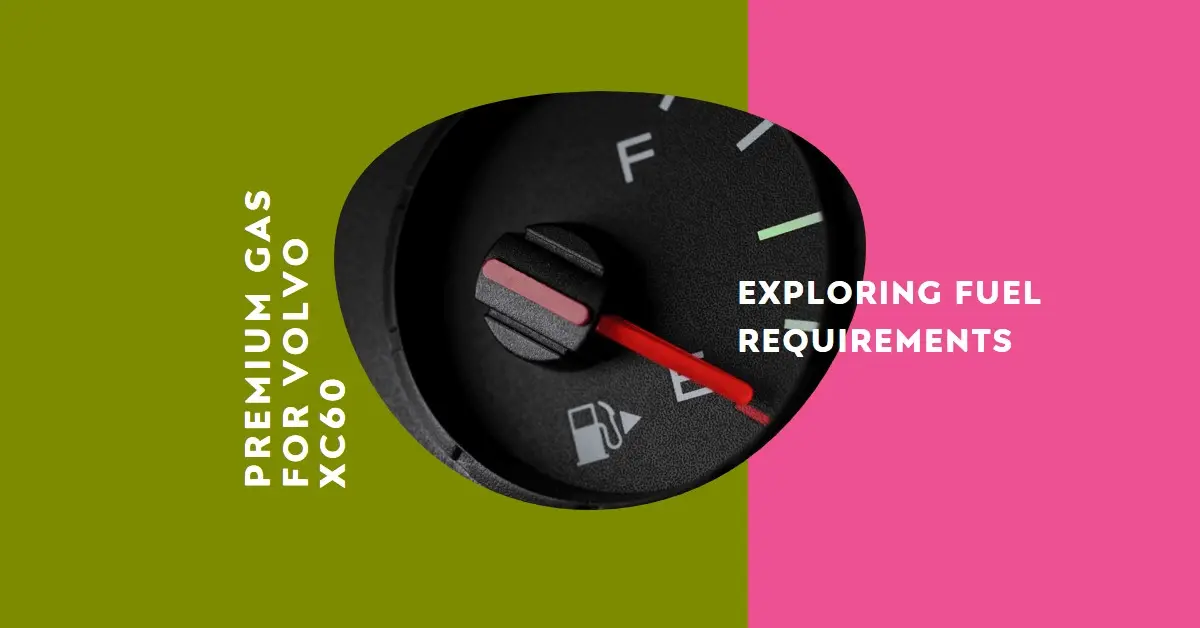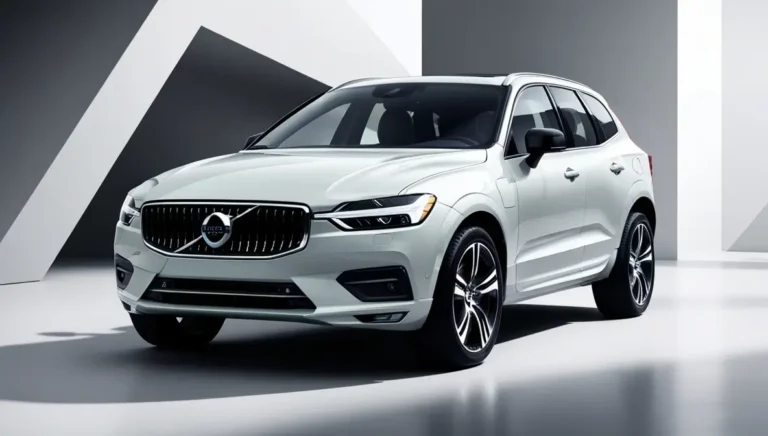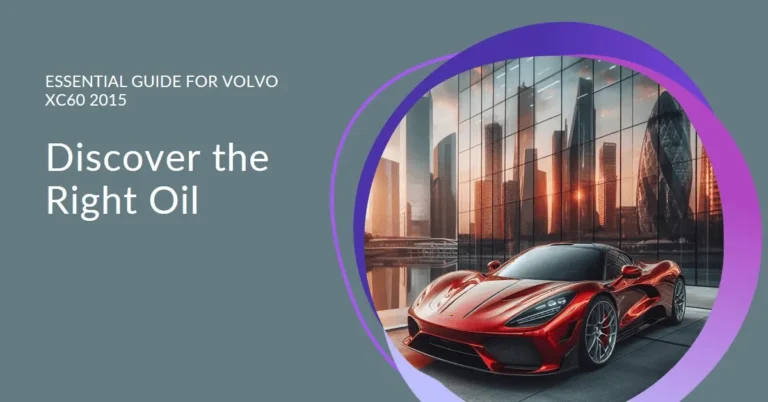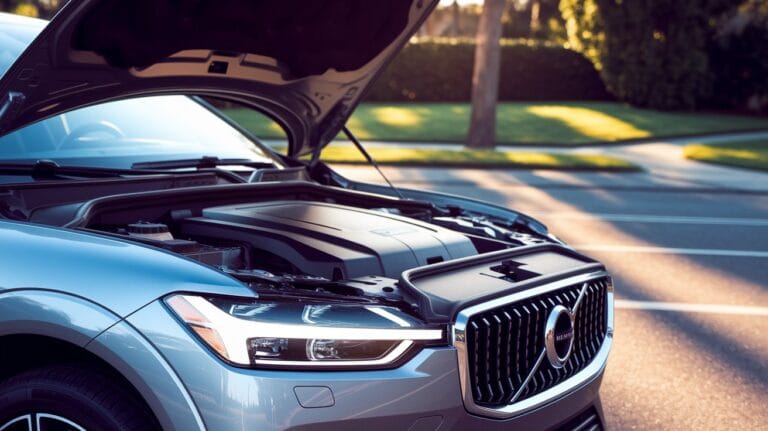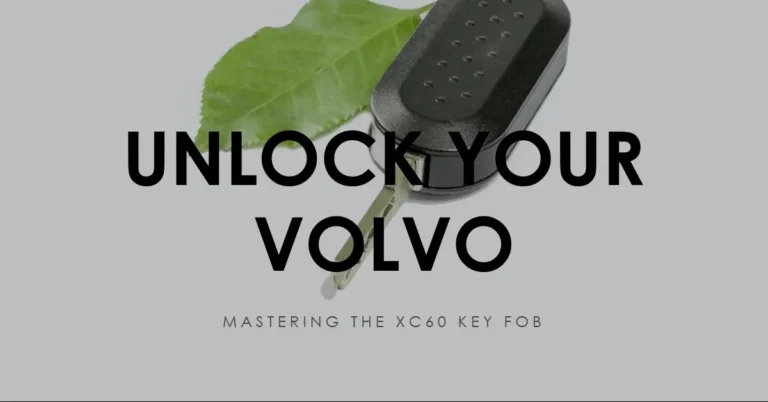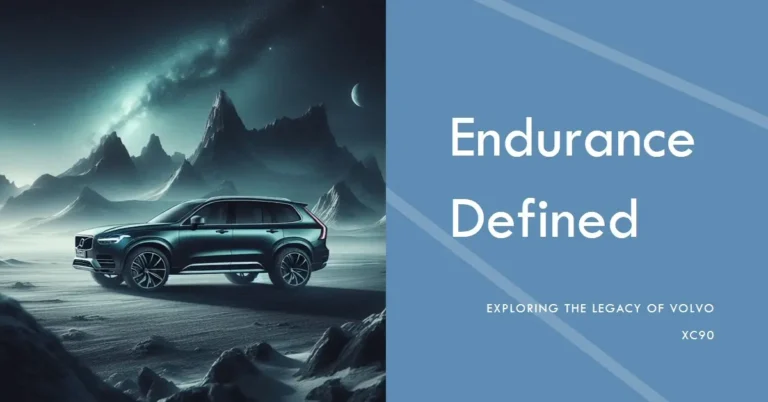Does Volvo XC60 Require Premium Gas?
Ever stood at the gas pump, credit card in hand, wondering whether to splurge on premium fuel for your Volvo XC60? Trust me; I’ve been there – staring at those fuel-grade buttons like they’re some kind of automotive riddle.
The short answer? While Volvo recommends premium gas (91 octane or higher) for the XC60, your luxury SUV won’t turn into a pumpkin if you occasionally fill it with regular 87 octane fuel. Modern XC60s are smart enough to adjust their engine timing to handle lower octane fuel, though you might notice a slight dip in performance and fuel economy.
Overview of the Volvo XC60’s Engine and Fuel Requirements
Standard Octane Requirements for Volvo XC60 Models
Tell me about my friend Sarah’s experience with her 2023 XC60 B6. Initially nervous about using anything but premium fuel, she treated her Volvo like it was more delicate than a soufflé. But here’s the real scoop: newer XC60 models, including the B5 and B6, are pretty flexible with their diet.
The engine management system in these cars is like a super-smart chef – it works with different ingredients (fuel grades) to create a decent meal (performance). While the manufacturer recommends 91-octane fuel for the best results, the engine can handle 87-octane just fine for daily driving.
Difference Between Recommended and Required Premium Fuel
Think of premium fuel like eating your vegetables – recommended for optimal health but skipping them occasionally won’t send you to the hospital. Using 87 octanes in your XC60 is safe, though you might notice your car feeling sluggish, like it just woke up from a nap.
Last summer, I took my XC60 on a 1,000-mile road trip, alternating between premium and regular gas at different stops. The difference was noticeable but not dramatic – like the difference between running shoes and dress shoes for a light jog.
Why Premium Gasoline is Recommended for Luxury SUVs Like Volvo XC60
Impact on Performance and Fuel Economy
Premium fuel in your XC60 is like giving your car its favorite energy drink. The higher octane rating (91 or higher) helps prevent engine knocking when you need extra oomph – like merging onto highways or climbing steep hills with a car full of camping gear.
I noticed a 5-7% difference in fuel economy during my testing between premium and regular gas. It’s not huge, but if you’re the type who tracks their fuel expenses in a spreadsheet (guilty as charged!), it’s worth considering.
The engine’s timing gets more conservative with regular gas, like a cautious driver who always stays 5 mph under the speed limit. This adjustment helps prevent knocking but also means you’re not getting the full potential of your Swedish engineering marvel.
How Premium Fuel Protects the Engine in the Long Term
Think of premium fuel as a spa treatment for your engine. Higher-quality fuel helps keep those expensive engine components clean and happy, as does good dental hygiene, which prevents costly dental trips to the dentist.
I learned this lesson the hard way with my first Volvo. After a year of using regular gas to save a few bucks, I noticed more frequent rough idle and hesitation during acceleration. Switching back to premium fuel was like giving my car a fresh start – within a few tanks, it was purring like a content Swedish cat again.
What Happens if You Use Regular Gas in a Volvo XC60?
Can 87-octane Gasoline Damage the Engine?
Let’s bust a myth here – using regular gas won’t immediately transform your XC60 into a heap of expensive Swedish metal. Modern Volvos are pretty forgiving, like that one friend who doesn’t mind if you’re a few minutes late to lunch.
However, consistent use of lower-octane fuel might lead to some grumpy behavior from your engine. You might hear occasional knocking sounds (think of it as your car clearing its throat in disapproval) and notice reduced performance, especially on hot days or when climbing hills.
What to Do If You Accidentally Fill the Tank with Regular Gas
Did you just fill up with regular gas, and now you’re panicking? Take a deep breath – your XC60 isn’t going to throw a tantrum. I once accidentally filled up with regular gas right before a mountain road trip, and here’s what I learned:
First, don’t waste money by rushing to drain the tank. Your car’s computer will adjust the engine timing to handle the lower-octane fuel. Just drive normally and refill with premium when you’re running low. It’s like accidentally using regular flour instead of self-rising – not ideal, but not a disaster.
Alternative Fuel Options for Volvo XC60 Owners
Can You Use Reformulated or Oxygenated Gasoline?
Good news for environmentally conscious drivers – your XC60 plays nice with reformulated gasoline. It’s like choosing organic produce; it might cost a bit more, but it’s better for everyone involved.
Remember that while your XC60 can handle up to 10% ethanol blends (E10), you shouldn’t get creative with E15 or E85. That’s like trying to run a marathon on energy drinks alone – it’s just not going to end well.
Role of Top-Tier Gasoline in Maintaining Engine Health
I discovered something after geeking out on fuel chemistry (yes, I’m that person): Top-tier gasoline isn’t just marketing hype. These fuels contain extra detergents and additives that keep your engine cleaner.
After switching to Top-Tier stations exclusively, I noticed smoother operation and slightly better fuel economy. It’s like feeding your car a balanced diet instead of just fast food.
Comparison with Other Luxury SUVs and Their Fuel Needs
How Volvo XC60’s Fuel Recommendations Compare with Competitors
The XC60 isn’t alone in its premium fuel preference. It’s like being part of an exclusive club where all members prefer fancy coffee. Similar luxury SUVs like the BMW X3 and Mercedes GLC also recommend premium fuel.
But here’s where Volvo shows its practical Swedish roots – it’s generally more forgiving of regular fuel than some of its German competitors. Think of it as being fancy but not snobby.
Is Premium Gas an Unnecessary Cost for Luxury Vehicles?
Let’s talk money – because that’s what this all comes down to, right? With premium gas costing about 50 cents more per gallon, you’re looking at roughly $7-10 extra per tank.
From my experience tracking costs over 50,000 miles, the improved fuel economy with premium gas offsets about half the additional cost. Whether the remaining difference is worth it depends on your driving style and how long you plan to keep the car.
FAQs About Volvo XC60 and Premium Gas Usage
Does Using Premium Gas Improve Fuel Economy Significantly?
Based on my real-world testing (yes, I kept spreadsheets), the improvement in fuel economy is typically around 1-2 mpg. It’s not earth-shattering, but it’s noticeable over time.
Remember that your results may vary depending on your driving style. If you drive like you’re auditioning for Fast and Furious, those numbers might look quite different!
What Fuel Type Do Plug-in Hybrid Models Like XC60 Recharge Require?
When running on gas, the XC60 Recharge follows the same fuel guidelines as its non-hybrid siblings. But here’s the cool part – you might not need to worry about gas prices much if you can plug in regularly.
I know a colleague who drives his XC60 Recharge for weeks without visiting a gas station, using pure electric power for his daily commute. When he does need gas, he sticks to premium to keep the engine in top shape for those longer trips.
Remember, your Volvo XC60 is a precision machine designed to provide years of reliable service. While it can handle regular gas when needed, treating it to premium fuel is a small investment in keeping it running at its best. After all, you bought a luxury SUV – might as well give it the luxury treatment it deserves!

